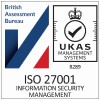The sun shines brightly, gliding through the trees, the magnificent panorama of a stately home, starts to reveal itself below. You can imagine the scene can’t you?
Flying a drone or UAV (unmanned aerial vehicle) is possibly the most powerful way to capture footage for your business or product. And video, rather than text, often resonates more readily with your customers.
2015 has been dubbed the Year of Video Marketing and Cisco estimates that 69% of all consumer internet traffic will be video-related by 2017.
Capturing video footage via a UAV is not just for stunning vistas, it’s a great way to demonstrate a product or service. Property agents or surveyors can accurately show boundary demarcations or the potential for redevelopment of a site. Insurers can get to grips with a claim, having the whole, rather than the partial view, of an accident or damaged property.
However, to do this, you need a team who can capture footage and, do so legitimately. Judging by some calls we get, asking for footage at a moment’s notice, there’s a clear case to educate buyers.
The rise in the popularity of drones – some being bought for a steal – and operated by enthusiasts, has seen a corresponding rise in illegal and unsafe filming.
Safety when filming is paramount. Without it you could be making your business, or your client’s business, liable for prosecution. The operator must have the CAA’s PFAW (permission for aerial work) certificate and either a BNUC-S (Basic National UAS) certificate or a RPAS (Remotely Piloted Aircraft Systems) certificate, so you know the crew can operate in UK airspace.
A shoot plan is the ideal starting point, so that you have a documented plan for the shoot, to give you much better final results and footage. To do this, you and the operator need to be clear about the purpose of every shoot and it should be part of a bigger plan. It can include a variety of factors, such as whether it’s a feature-film, in which case shots need to be taken to develop the script or storyboard.
A longer-term plan might be to create say, a historical archive for future generations and for a wedding video, you have to bear in mind the long-term implications for the shoot.
Like so many other suppliers, experience counts for a great deal. Length of time in business and how much experience of photography or video filming is an essential element. This can be the make or break when it comes to the finished quality of the footage. Poor camera technique equals low quality images. Simples.
In addition, operators need to have experience doing this work, as it can be tricky to perform the complex manoeuvres to obtain the footage required.
A professional set up is a must. If online videos are jerky, this is often due to a cheap UAV gimbal – specialist support equipment – or it could be bad flying or operation.
To help you judge, it’s worth speaking to the operators’ clients, rather than taking them for granted. Most good practitioners will be happy to oblige.
Appropriate insurance cover is a must. Ask to see a copy of the public liability insurance as some insurance companies will only cover the operators for theft of equipment.
Everything needs to be part of an overall plan, rather than an end in itself and this is something that it’s easy to lose sight of, without the requisite experience.
Logistics are key too. The length of the shoot, the footage you need to end up with and the time it will take to get it? A checklist of equipment will mean you’re well equipped to get the most from shoot time.
Last but by no means least, ask yourself if you can work with these people? Are they professional, punctual, enthusiastic and happy to provide advice and guidance, so you ultimately get what you want?
Warlingham, Surrey, UK
